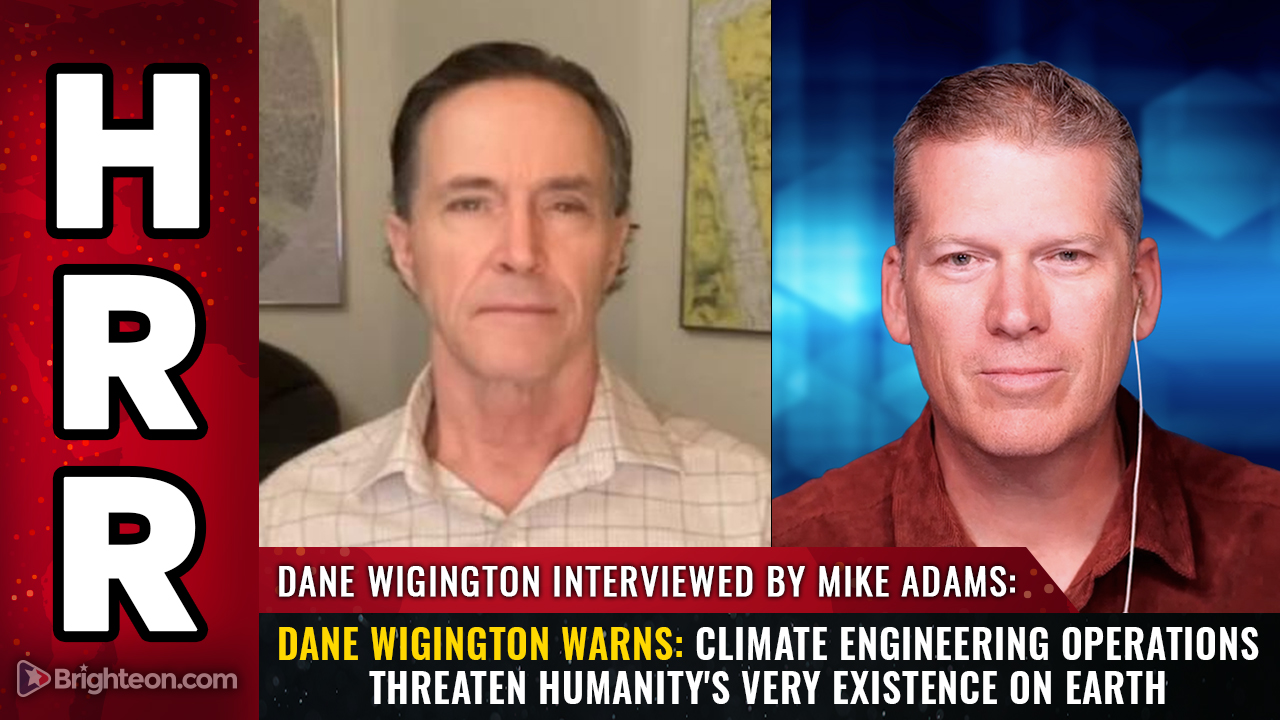FAKE GLOBAL WARMING driving housing values down, down, down
07/22/2025 / By S.D. Wells

A North Carolina real estate broker is raising alarm over what she describes as a coordinated effort to devalue land and undermine private property ownership using questionable climate risk assessments on popular real estate platforms like Zillow. Stephanie Cross, a licensed broker representing a $6.2 million estate, says that a misleading “flood risk” rating attached to the property’s Zillow listing dramatically decreased interest and triggered what she calls a suspicious inquiry—just hours after she challenged the data.
- Zillow faces accusations over misleading climate risk data: Real estate broker Stephanie Cross accused Zillow of artificially lowering the perceived value of a $6.2 million North Carolina estate by listing it with a high flood risk, despite the property not being in a FEMA flood zone and never having flooded. The rating originated from the First Street Foundation, a third-party climate data vendor.
- Conflicting assessments and lack of transparency: Cross pointed out discrepancies in climate risk ratings across platforms using the same data—Zillow flagged the property as high risk, while Homes.com marked it as low. She criticized both Zillow and First Street for offering no clear avenue for disputing the data without an official FEMA flood certificate.
- Property value impact and suspicions of coordination: After Cross emailed Zillow to dispute the listing, the platform abruptly changed the listing status to “off market,” dropped the value to $401,010, and removed the climate risk data—without replying. Cross suspects a coordinated effort to devalue property and discourage ownership via climate misinformation.
- Concerns over activist infiltration in Real Estate: Cross also received a suspicious inquiry shortly after contacting Zillow from an environmentalist-linked organization. She warns property owners to monitor their listings for hidden climate risk labels that may mislead buyers, reduce demand, and force unnecessary insurance or price reductions.
‘It’s a scam’: Zillow accused of using ‘fake climate risk data’ to tank home values – online realtor’s ‘climate risk assessment’ attracts suspicion
The controversy began when Cross’s clients noticed a 9 out of 10 “flood risk” score on Zillow, accompanied by a recommendation for flood insurance. The data originated from First Street Foundation, a government-funded entity that provides climate risk metrics to Zillow, Realtor.com, and other real estate sites. However, the estate is not located in a FEMA-designated flood zone, nor was it affected by recent regional hurricanes. Cross argued that the rating was not only inaccurate but harmful—damaging the property’s perceived value and discouraging potential buyers.
Cross sees this as part of a broader pattern: “This is a coordinated attack on property value and land ownership,” she said. By affixing arbitrary, unverifiable risk scores to listings, Cross claims platforms are artificially suppressing market demand and creating barriers to selling. The 128-acre estate, which includes a large home, natural water sources, and rolling pastures, initially drew substantial buyer interest—but that diminished rapidly after the flood rating appeared online.
When Cross emailed Zillow on March 24, 2025, disputing the flood risk data and citing FEMA’s own system, Zillow abruptly removed the climate risk assessment and dropped the listing’s valuation to just over $400,000—a massive discrepancy from the original $6.2 million asking price. No explanation or response was provided by Zillow. Complicating matters further, another real estate site using the same First Street data—Homes.com—listed the same property as having minimal flood risk, raising concerns about the credibility and consistency of the data.
Shortly after sending her complaint, Cross received an unusual inquiry from David Wintrode of the Civilization Research Institute—an environmental organization with vague public details—expressing interest in using the estate as a headquarters. Cross found the timing and nature of the inquiry suspicious, reinforcing her belief that activist groups may be targeting high-value properties with manipulative data to push an environmental or land control agenda.
Efforts to contest the information with First Street Foundation have been fruitless. The organization’s FAQ page states it won’t address disputes without an official FEMA flood certificate, placing the burden on individual sellers to disprove what they argue is fabricated data.
Cross’s experience has sparked broader questions about the legality and ethics of publishing unverified climate data that materially impacts property transactions. She warns that sellers must stay vigilant and actively monitor their listings to ensure they haven’t been sabotaged by what she believes is an activist-driven campaign to control land use through digital misinformation.
Check out ClimateAlarmism.news for updates on psychotic billionaires pretending like the earth is going to boil next year so they can take all our money and control us.
Sources for this article include:
Submit a correction >>
Tagged Under:
climate change, climate hoax, deception, faked, First Street, global warming, homeless agenda, Housing Market, housing values, lies, online realtor, Real Estate, value trend, values down, Zillow
This article may contain statements that reflect the opinion of the author




















